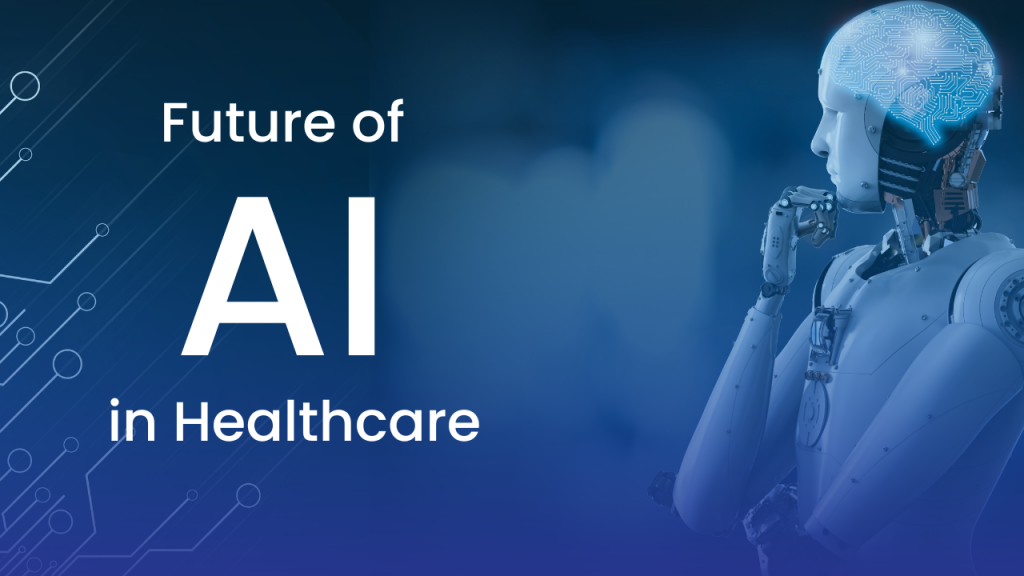| Posted on
Improvements in decision-making and process management have caused many sectors to become more productive. Some of these sectors include health care, which facilitates precision medicine, proactive patient care, dynamic treatment, and finance, which helps perform functions such as risk management, fraud detection, and customer service thanks to AI's assistance chatbots. Moreover, these industries also utilize AI's data processing capabilities, making fewer mistakes and maximizing performance, It increases the likelihood of advancements and the outcomes obtained.
Healthcare:
- Diagnostics driven by AI to detect diseases faster and more precisely than humans would manage.
- Creation of tailored treatment strategies employing prediction models.
- Surgery is performed by robots with high accuracy and minimal intrusion into the body.
- The application of artificial intelligence technology in creating new drugs and medicines makes the process faster and cheaper.
Finance:
- Detection of fraudulent cases using AI technology.
- We are employing AI technology to engage customers with chatbots and voice assistants.
- Risk and predicted trends in a business's finances are automatically analyzed.
- Trading and portfolio management utilizes artificial intelligence systems for implementing trading ideas and managing portfolios.
0
0 Comment
| Posted on

Artificial intelligence is revolutionizing industries like healthcare and finance by improving efficiency, accuracy, and decision-making processes. In healthcare, AI tools can analyze huge amounts of data to identify patterns, diagnose diseases, and personalize treatment plans for patients. This technology also streamlines administrative tasks and enhances patient care through virtual consultations and predictive analytics. In the financial sector, AI algorithms are transforming operations by detecting fraudulent activities, optimizing investments, and creating personalized banking experiences. Chatbots powered by AI offer round-the-clock customer service while advanced analytics provide insights into market trends. Overall, artificial intelligence is reshaping these industries by driving innovation, increasing productivity, and delivering better outcomes for both professionals and their clients.
0
0 Comment
| Posted on
Artificial Intelligence (AI) is having a profound impact on industries like healthcare and finance, driving innovations that are reshaping the way these sectors operate. Here’s how AI is transforming each of these industries:
1. Healthcare
AI is revolutionizing healthcare by improving diagnosis, treatment, and patient care, leading to enhanced efficiency and better health outcomes. Key areas include:
-
Medical Imaging and Diagnostics: AI-powered tools are helping doctors detect diseases more accurately and at earlier stages. Machine learning algorithms can analyze X-rays, MRIs, and CT scans to identify anomalies such as tumors or fractures with a high degree of accuracy. For example, AI can assist in diagnosing conditions like cancer, heart disease, and neurological disorders.
-
Personalized Treatment: AI algorithms can analyze patient data (genetics, medical history, and lifestyle) to provide personalized treatment plans. This improves patient outcomes by tailoring interventions to individual needs.
2. Finance
AI is transforming the finance industry by optimizing operations, improving risk management, and providing personalized financial services. Here’s how:
-
Fraud Detection: AI algorithms are instrumental in detecting fraudulent transactions. Machine learning models can analyze vast amounts of transaction data in real-time, spotting patterns and anomalies that indicate potential fraud. These systems become more effective over time as they learn from new fraud attempts.
-
Algorithmic Trading: AI is widely used in stock markets for algorithmic trading. High-frequency trading algorithms execute large volumes of trades in milliseconds, optimizing investment strategies based on real-time market data and trends.
0
0 Comment
